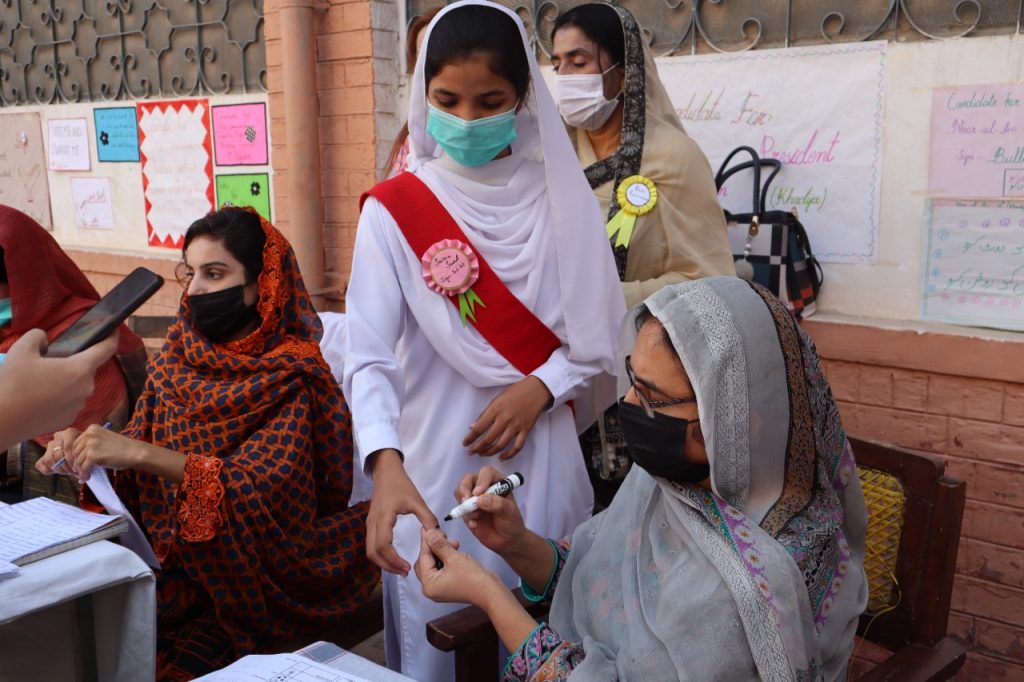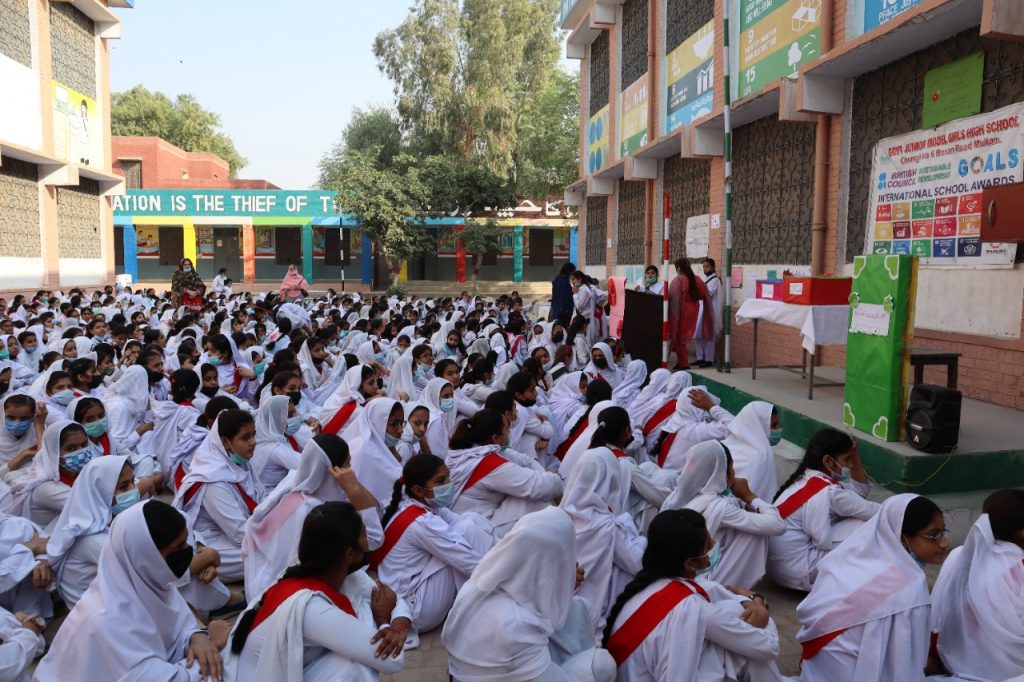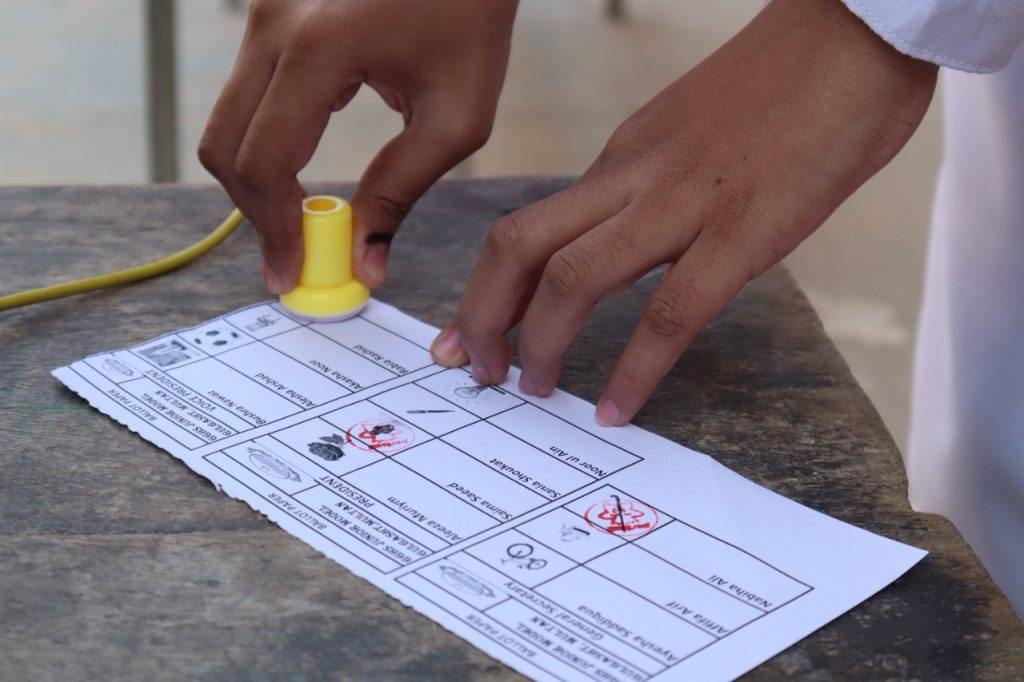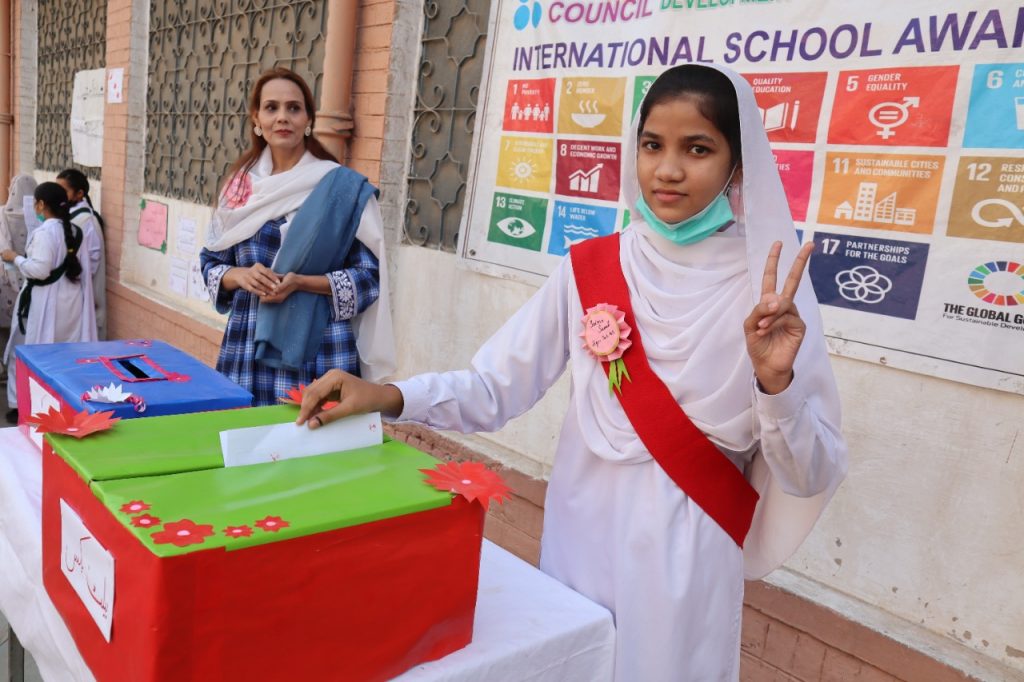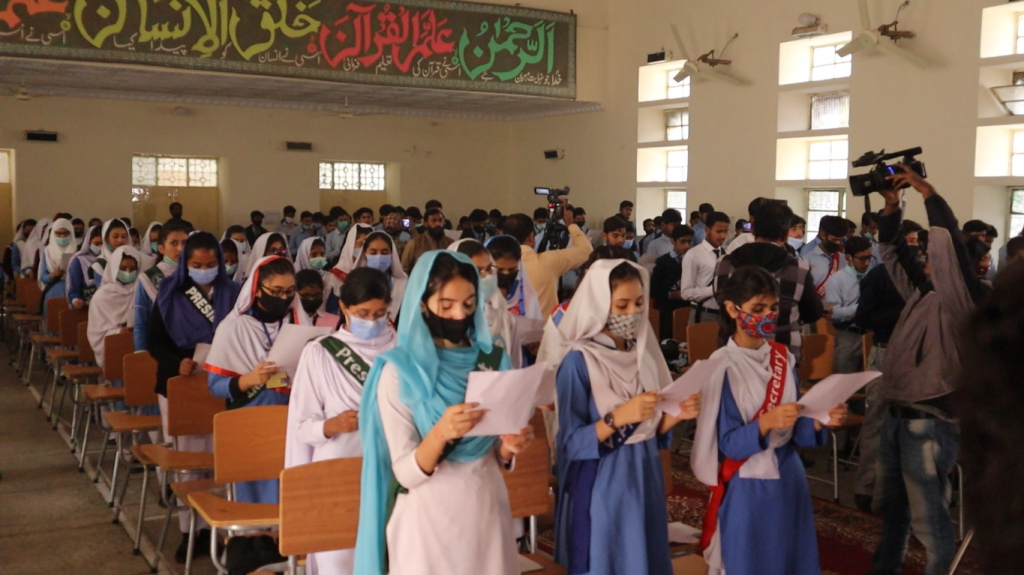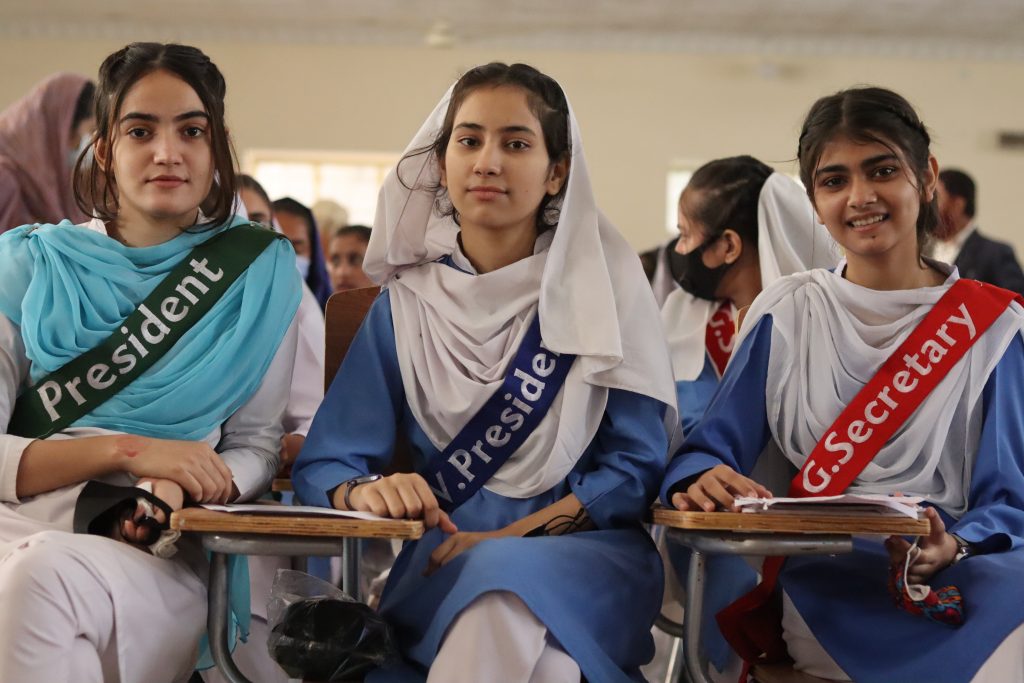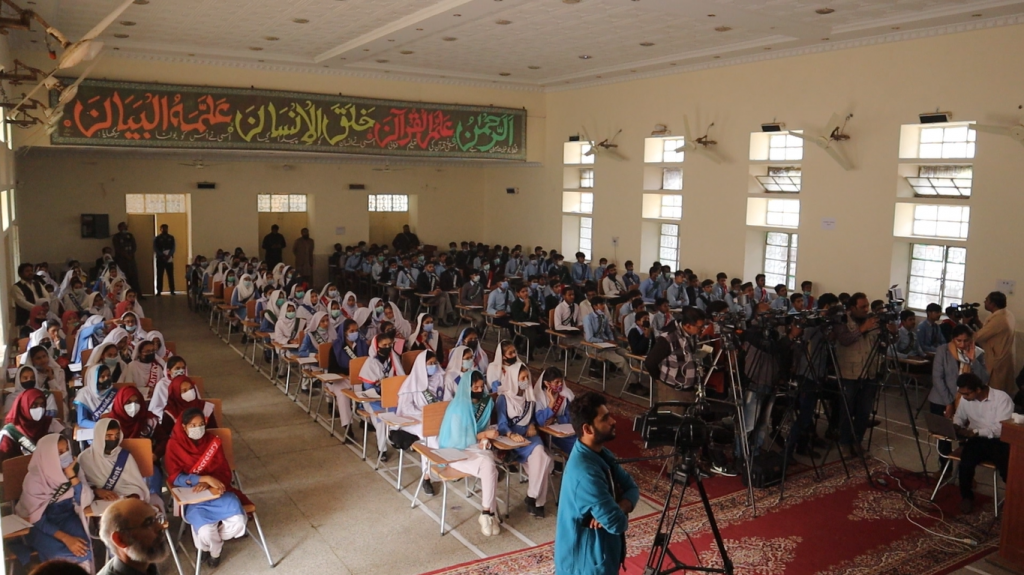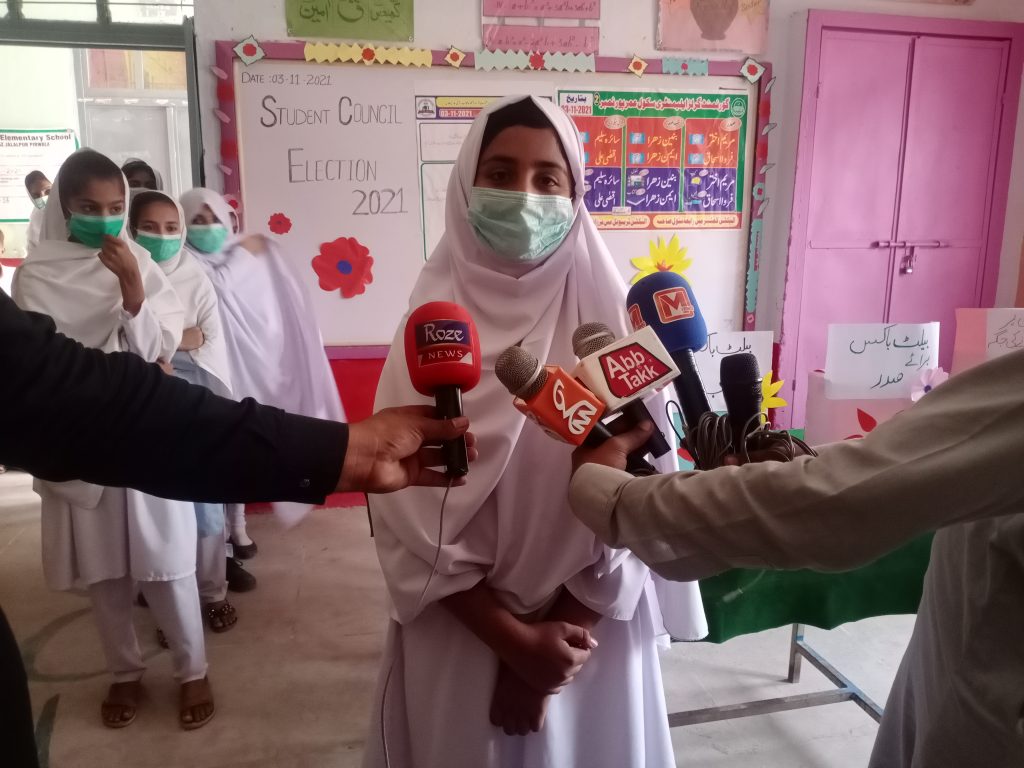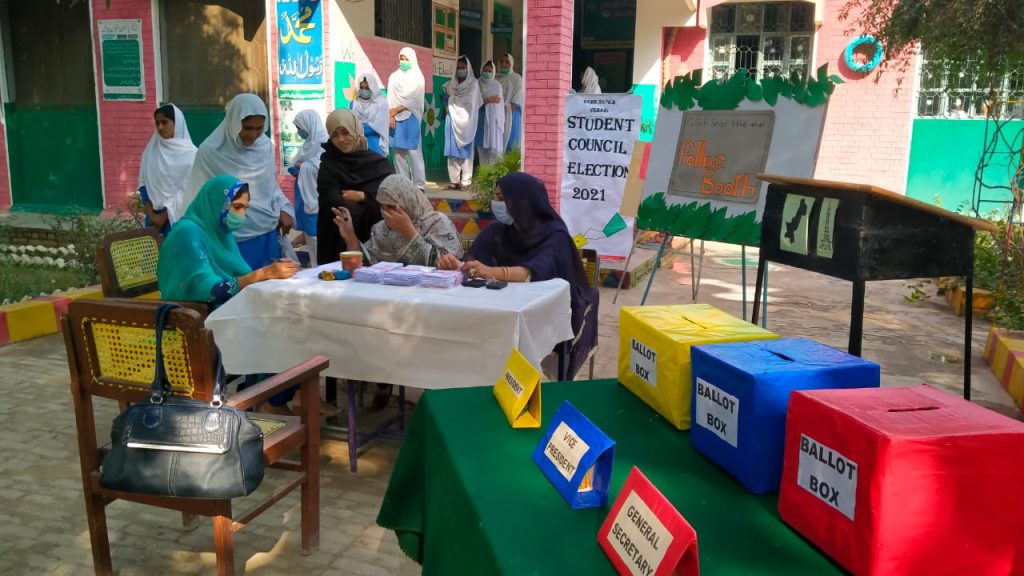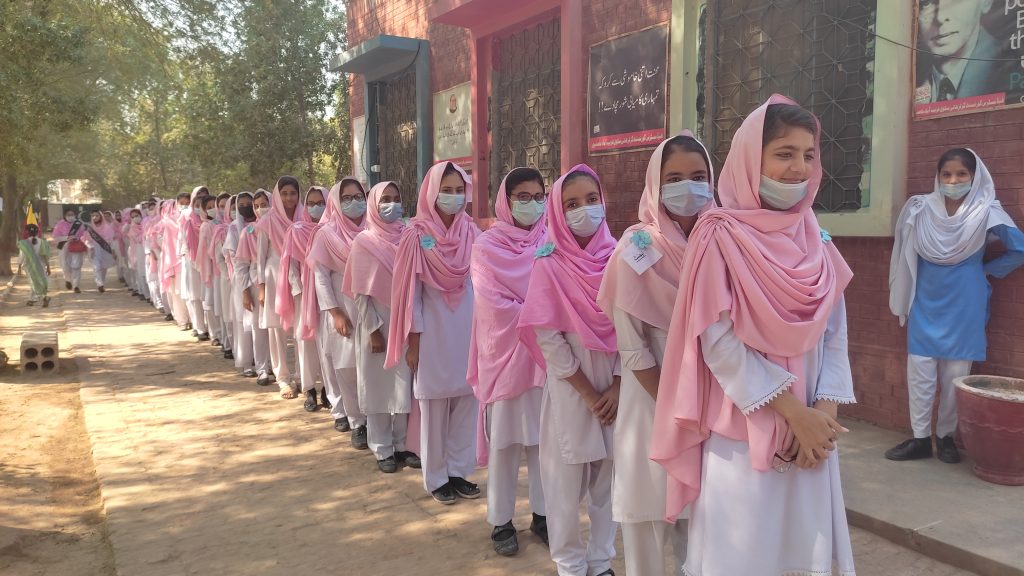CONSTIUTUION OF SCHOOL COUNCILS
Students Councils are being constituted in the elementary/high/higher secondary schools in South Punjab. These councils would comprise President, Vice-President, General Secretary, and Class Representatives from Class 6 and above. Whereas, such precedents are available in private schools, especially the leading chains, students of the government schools remain deprived of this important co-curricular activity and its intended benefits.
OBJECTIVES:
- To develop and nurture leadership skills in the students.
- To equip students with life skills such as management, communication, confidence etc.
- To revive co-curricular activities in public schools by actively engaging students.
- To train the students in taking and fulfilling responsibilities.
- To introduce democracy and democratic values at grassroots level.
WHY STUDENTS COUNCILS AND NOT STUDENT UNIONS?:
Unfortunately, over the time, the term ‘Students Union’ has developed a negative connotation due to some unpleasant past experiences. We also did not want to give the impression of ‘unionism’; hence opted for the Students Councils instead. In fact, whereas all the good aspects of the student unions might be adopted, with necessary amendments, in students councils, no compromise would be made on shortcomings of the former.
The basic differences between the students unions and students councils would be as follows:
- Unlike students unions, where students with political inclinations/ambitions participate, the criteria for students councils is such that only hardworking, capable and disciplined students can participate, be presented as role models, and get elected.
- Final decision as to the selection of candidates for contesting elections for students councils rest with the school administrations.
- Interested students cannot participate in the elections for students councils by forming groups/parties. They can do so on individual level only, and that too with the consent of the school administrations, as stated above.
- The entire phenomenon of students councils would operate under a strict discipline and a controlled environment. Any serious violation may even lead to their dissolution.
METHODOLOGY:
- Ordinarily, elections for the students councils would be held immediately after the summer vacations, and schedule would be announced at least 10 days in advance. This year, however, owing to corona related restrictions, elections are being held in the first week of November.
- In the first/pilot phase, the students councils would be introduced in Elementary, High and Higher Secondary schools, for class 6 and above. Later on, it may be extended to other classes and schools too.
- A senior teacher shall be designated as Election Commissioner for the purposes of election of students council. Another senior teacher would be designated as Election Tribunal to hear and decide election related petitions. The Election Commissioner and the Election Tribunal would both constitute the Election Commission for a given school.
- The Students Council would comprise President, Vice-President and General Secretary hailing respectively from the three senior most classes of a school. Also, from class 6 and above, every class would elect one Class Representative (CR) each for the Council.
- The election schedules would be announced well in advance to enable eligible and interested students to run their campaigns for at least one week. In addition, they shall be allotted election symbols and allowed to nominate polling agents. Similarly ballot papers, voting screens, ballot boxes etc. shall be used, so and so forth. The basic concept is to give students full exposure of the election process which is held at higher levels.
- Candidate would be free to select election symbols for themselves, with the approval of the Election Commissioner. They would, however, not be allowed to select symbols which resemble symbols of political parties of the country.
- Candidates for the President, Vice-President and Secretary General would be given an opportunity to speak to the students in school assemblies by the School Administration/Election Commissioner. The candidates would be given 5 minutes each to introduce him/herself, present his/her agenda, and seek votes in his/her favour.
- The candidates for Class Representatives would be given a similar opportunity in their respective classes by the Class Teachers.
- Ample time would be provided for casting of votes on the election day. Counting of votes would be undertaken after the cut-off time, and in presence of election agents of all candidates. The results shall be announced by the Election Commissioner in a school assembly especially held for the purpose, immediately afterwards.
- Any election related grievance/complaint would be swiftly dealt with the Election Commission. Even the election results can be withheld, if a genuine complaint is brought into the notice of the Election Commission, till the same is resolved on merits and in the light of relevant rules and instructions.
- The President-elect, under the over-all supervision of the Election Commissioner, shall distribute/assign responsibilities amongst the other officer bearers of the Council.
- In order to ensure that no aspect/element of the general elections held at national level is left out, the Students Council shall even take a formal oath before assuming their responsibilities, wherein the elected members would vow not only to serve their fellow students and assist their teachers but also to forget the bitterness of the past and take along those who would have contested elections against them.
ELIGIBILTY
- Only those students shall be eligible to contest for the councils who had secured top three positions in last annual exams. In case of disinterest by anyone, next in line/merit would become eligible.
- The interested student shall have more than 80% attendance.
- The interested student shall have unblemished record regarding his/her discipline and general conduct. This matter would, however, be decided by the Election Commissioner in consultation with the teachers of the students concerned. In case of an adverse decision, the student would have a right of appeal with the Election Tribunal.
CODE OF CONDUCT
- The election campaign would be run within the norms of decency, and in the manner/times as approved by the Election Commissioner.
- School discipline would be strictly observed at all times.
- No scandalous or derogatory remarks would be made against the opposing candidate. Negative campaigning is to be discouraged strictly.
- No threat or undue favour, in the forms of gifts, bribery or parties, shall be extened/offered.
- Expenses would be allowed to incur only on the preparation of posters to be displayed at the designated places. Handmade or computer printed posters may be used for the purpose. The candidates would keep a record of all such expenses made, and share the same with the Election Commissioner after the elections. Election Commissioner, on his part, would announce maximum limit of expenses a candidate could incur, by taking all relevant factors into account, and publicize it well ahead of the elections for strict compliance by all concerned.
- Win is to be celebrated, and defeat is to be admitted, with grace.
- Any violation of the code may result into disqualification of the candidate.
- Any grievance may be raised with the Election Commissioner, who may decide the matter himself/herself or refer the same to the Election Tribunal.
- It would be responsibility of the candidates to remove their respective election campaign/publicity material after the culmination of elections.
RESPONSIBILITIES:
- To become a role model for other students by exhibiting best discipline, performance, conduct and character.
- To arrange co-curricular activities such as bazm-e-adab, speech/debate, poetry, essay writing, painting, and other such competitions.
- To lead special initiatives such as promotion of book reading amongst the students, improvement of writing skills, green schools, etc.
- To guide/encourage on how to access the online magazine, and how to contribute to the same.
- To arrange sports activities in the school, to ensure active participation by the students, and to assist the school administration in identifying the best athletes/sportsmen/players amongst them for representing school in competition of higher level.
- To help the school administration in maintaining discipline at the campus.
- To assist the school administration on special occasions such as parents’ day, annual functions, August 14 events and more.
- To communicate the problems faced by the students, and their opinions on various issues, to the school administration.
- To convey the messages/announcements by the school administration to the students, as and when needed.
- To guide the new comers/fresh admissions.
- Other responsibilities as and when assigned.
END OF TERM
The term for students councils would be one year. The exceptions would be as follows:
- An office bearer leaves the school.
- An office bearer resigns from the office. However, the resignation would be subject to the approval of the Head Teacher/Principal.
- The officer bearer is found violating the discipline of school or using his/her position to his/her undue advantage. In such case, the Head Teacher/Principal would disqualify him/her, after consulting the senior teachers of the school, and hold elections for the position afresh. This power shall, however, be used by the school administration most sparingly, and as a matter of last resort only, and that too after giving a chance of detailed hearing to the concerned office bearer.


